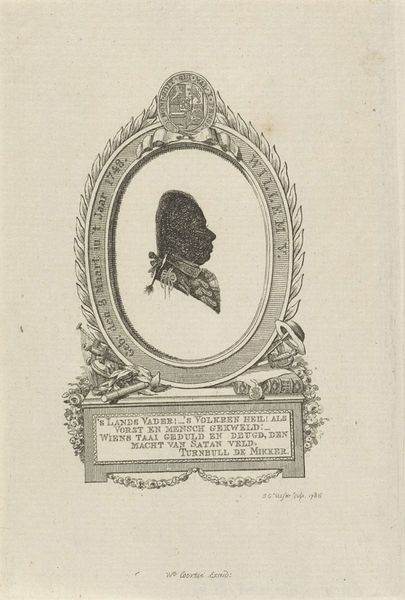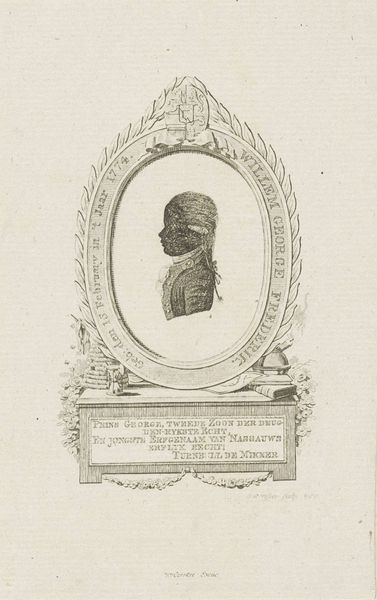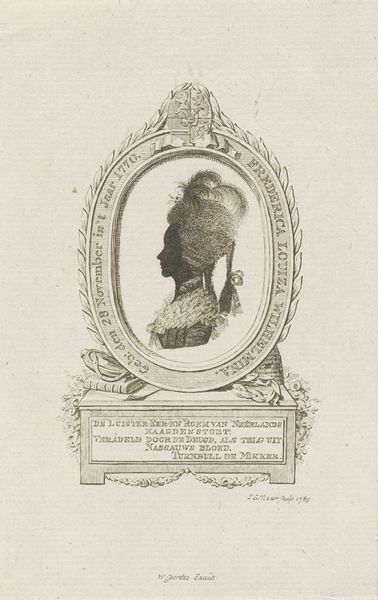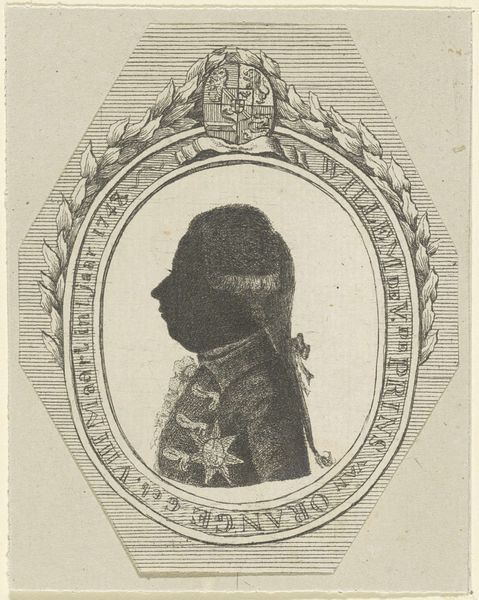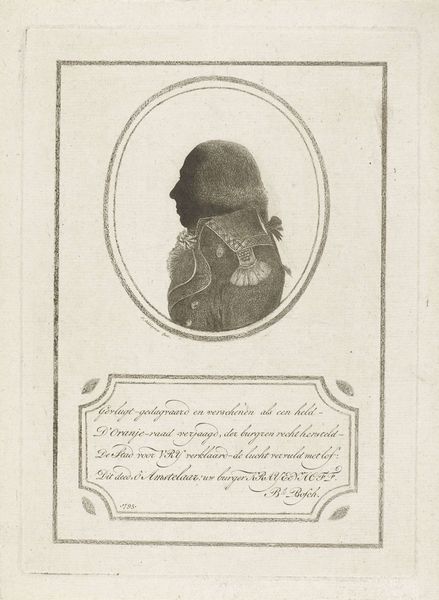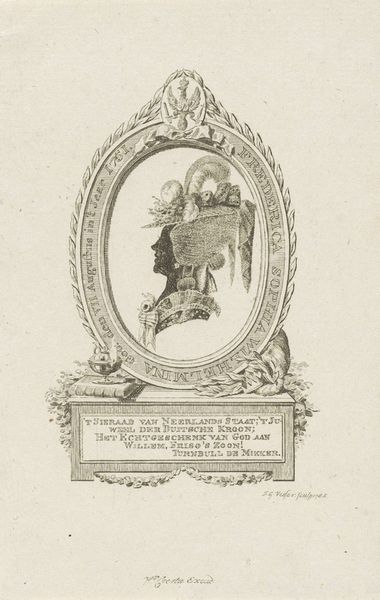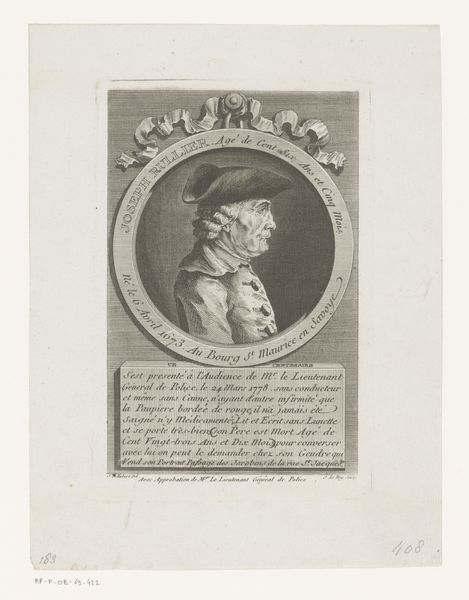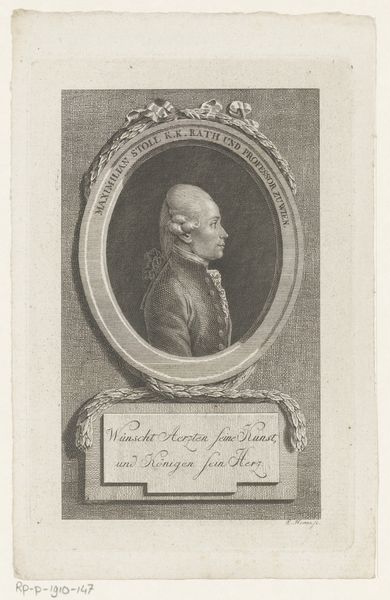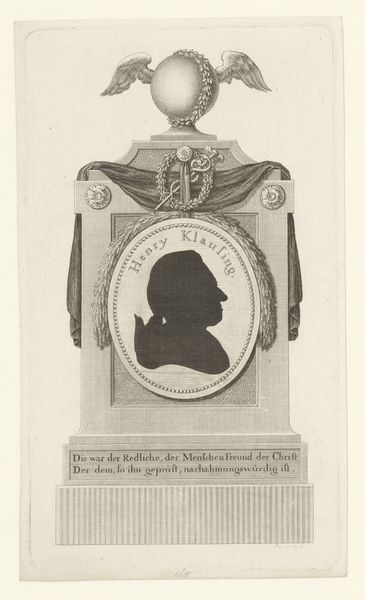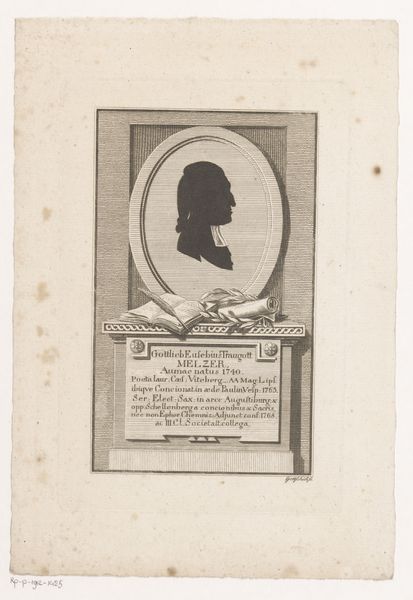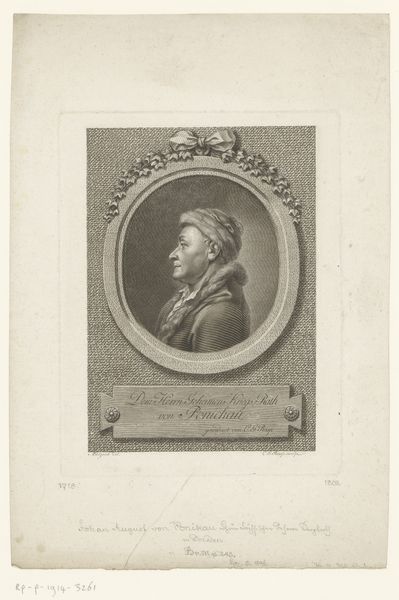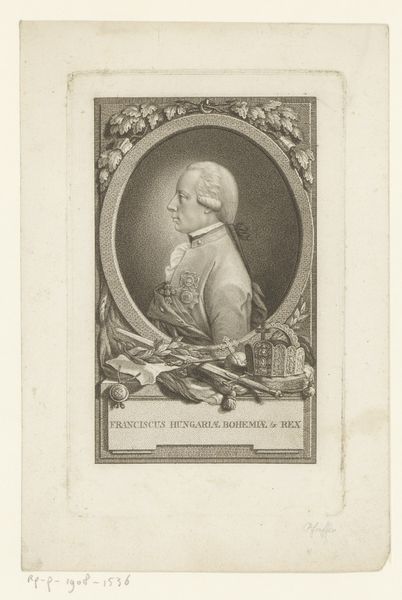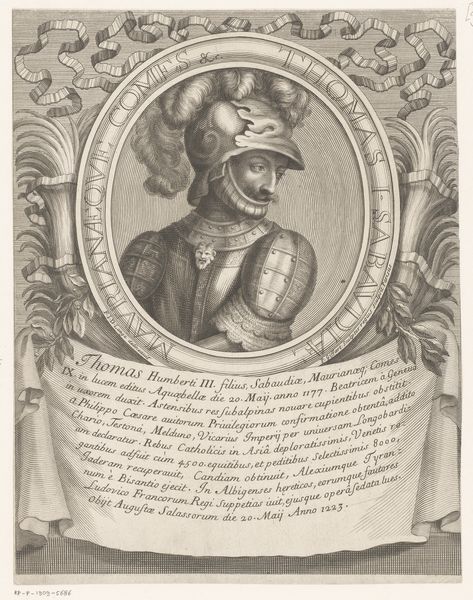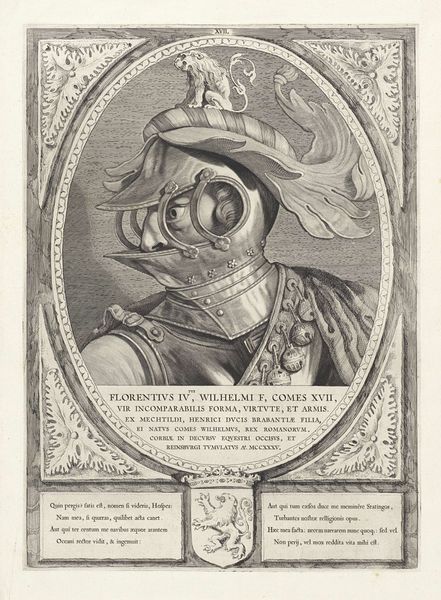
Silhouetportret van Willem I Frederik, koning der Nederlanden 1785
0:00
0:00
jangerritszvisser
Rijksmuseum
print, engraving
#
portrait
#
pencil drawn
#
neoclacissism
# print
#
old engraving style
#
engraving
Dimensions: height 147 mm, width 98 mm
Copyright: Rijks Museum: Open Domain
Editor: Here we have "Silhouette Portrait of Willem I Frederik, King of the Netherlands," a print made in 1785 by Jan Gerritsz Visser. It feels very formal, very much about presenting an image of power. What do you see in this piece, something beyond just a historical record? Curator: Absolutely. It's a fascinating distillation of power into graphic form. Look at how the silhouette itself, stark and absolute, eliminates any ambiguity. It speaks to an age of Enlightenment ideals, a desire for clear definition and rational order. But also, consider the symbolic weight of the surrounding frame. Editor: The laurel wreath and heraldry, definitely symbols of victory and royalty... Curator: Precisely. But there's more. The frame is not merely decorative; it functions as a psychological barrier, distancing the King, elevating him. Silhouettes were popular for a reason – they are a graphic and psychological reduction of a person to their essential, recognizable form. They denote status and project power through instantly recognisable visual markers. Editor: So it's about controlling the King's image, almost turning him into a brand? Curator: Indeed. But it also says something about how identity itself was being understood and controlled in the late 18th century, a prelude to modern ideas of branding and celebrity. What does it mean to be represented simply as a shape, a shadow? Editor: I hadn't considered the silhouette itself as having such power. It's more than just a likeness, it's an idea. Thanks, this has been so enlightening. Curator: And for me. Each element, from the silhouette to the laurel, shows the manipulation of visual symbols to solidify power. A fascinating reminder that images are never neutral.
Comments
No comments
Be the first to comment and join the conversation on the ultimate creative platform.
